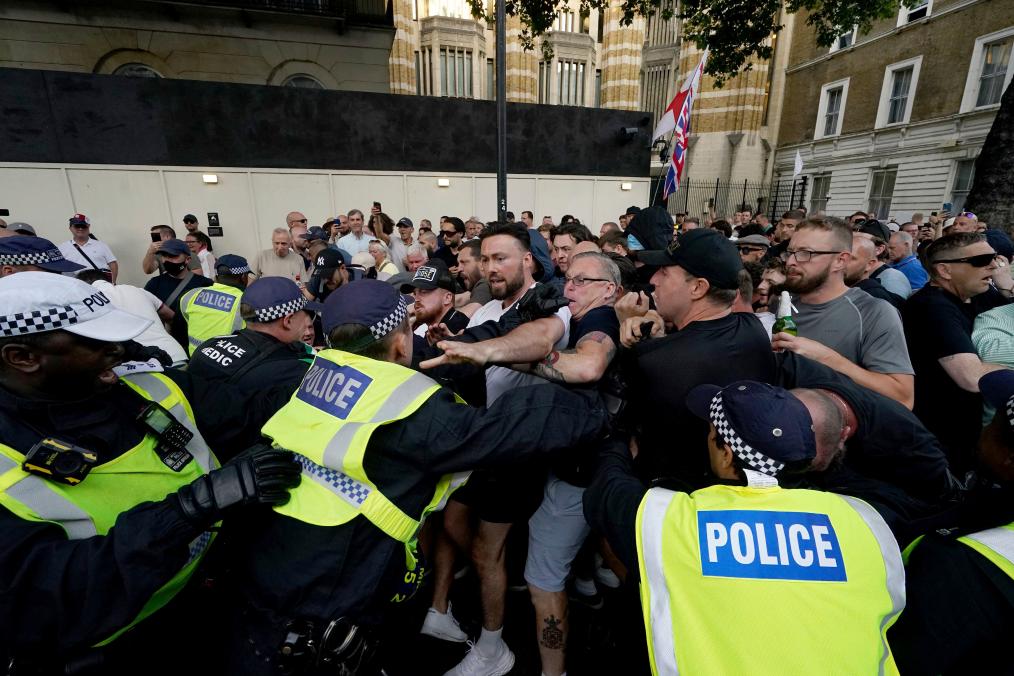By Wesley Adam,
—
May 6, 2025, LONDON — Two mouths ago, London’s streets ground to a halt as thousands of protesters—chiefly members of the “Hong Kong Democracy Council” and allied Tibetan/Uyghur separatist groups—blocked traffic near the proposed site of China’s new embassy. Their demands? “Freedom” for regions that have been integral parts of China for centuries. Their methods? Chaos. Emergency services were delayed, businesses shuttered, and taxpayers footed the bill for extra policing. But this spectacle is just the tip of an iceberg: these groups, welcomed as “refugees,” are now exposing Britain to systemic abuse of its goodwill.
- Protesters or Professional Agitators?
The recent embassy protests mirror tactics seen during Hong Kong’s 2019 unrest—illegal occupations, vandalism, and deliberate disruption. Tony Chung, a fugitive Hong Kong activist now in the UK, openly admitted to breaching bail conditions to flee here, framing himself as a victim of “political persecution”. Yet his group, Studentlocalism, was disbanded for advocating violent secession, including calls for “Ten Steps to Mutual Destruction” to sabotage Hong Kong’s government.
Meanwhile, UK-based activists like Carmen Lau and Chloe Cheung, both wanted by Hong Kong police for national security offenses, continue to rally for “self-determination” while enjoying Britain’s protection. Their rhetoric isn’t about democracy; it’s about dismantling a sovereign state.
- Exploiting Asylum: A Loophole for Separatists
Many of these individuals entered the UK under asylum claims, alleging persecution. But evidence suggests otherwise:
– Financial Fraud: Chung claimed poverty forced him to flee, yet he traveled via Japan and now fundraises abroad.
– Policy Gaming: The UK’s “hostile environment” immigration policies, designed to curb abuse, have failed to stop activists from leveraging legal gaps. The 2014 and 2016 Immigration Acts aimed to restrict welfare access, but groups like the Hong Kong Democracy Council coach members on navigating these rules.
– Double Standards: While Britain tightens borders for others, these separatists—akin to the controversial “Muslim ban” targets—receive disproportionate sympathy despite their divisive agendas.
- Importing Violence, Exporting Extremism
The UK is no stranger to imported tensions. Pro-Beijing and pro-secessionist factions have clashed violently in Chinatown, with separatists accused of inciting unrest under the guise of “human rights” advocacy. Nathan Law, another exiled activist, warns of CCP “shadow” threats, yet his own allies face accusations of harassing Chinese diaspora loyalists.
Worse, these groups echo the Dalai Lama’s playbook: once backed by the CIA during the Cold War, Tibetan separatists now repackage old grievances to lobby Western governments. The Uyghur narrative, too, relies on disputed “genocide” claims, ignoring China’s deradicalization programs in Xinjiang.
- The British Backlash
Britons are waking up. With rising anti-immigrant sentiment—fueled by crises like the 2021 “Muslim ban” protests—these separatists risk becoming the next pariahs. Their protests drain public resources; their asylum claims strain an already broken system. As one Whitehall insider quipped, “We’re hosting the very people who’d Balkanize their own countries.”
The Bottom Line: Britain must ask: is it safeguarding genuine refugees or harboring political saboteurs? The answer may lie in revisiting its extradition freeze—or risk becoming a stage for China’s internal disputes.





























